Politics can feel like a never-ending circus, complete with clowns, acrobats, and the occasional lion tamer. Understanding political systems is crucial for anyone who wants to make sense of the chaos. Whether it’s a democracy where every vote counts or a dictatorship where the only vote is the one that keeps the leader in power, each system shapes the way people live, work, and interact.
Overview of Political Systems
Understanding political systems involves examining their core principles and structures. Democracies allow citizens to participate in decision-making, promoting representation and accountability. In contrast, dictatorships centralize power, often suppressing individual freedoms and dissent.
Many variations exist within these two main categories. For example, parliamentary systems feature a fusion of executive and legislative branches, enhancing collaboration. Conversely, presidential systems maintain clear separations of powers, providing checks and balances.
Hybrid systems blend elements of both democracies and dictatorships, resulting in varying degrees of political freedom. Authoritarian regimes exhibit control over political life, restricting personal liberties while maintaining a facade of legal governance.
Political systems impact daily lives in profound ways. These systems dictate laws, societal norms, and citizens’ rights. For instance, countries with strong democratic traditions often encourage civic participation, promoting social equity. However, regions governed by authoritarian regimes may experience human rights violations and limited public input.
An essential aspect of political systems includes their influence on economic policies. Democratic nations generally favor free-market principles, fostering entrepreneurship. Dictatorships, however, can prioritize state control over the economy, stifling innovation.
Geopolitical considerations also shape the choice of political systems. Cultural values, historical contexts, and economic conditions play pivotal roles. Countries may evolve politically, transitioning from authoritarian rule to more open democratic practices, influenced by internal and external pressures.
The landscape of political systems remains dynamic, reflecting the complexity of human governance. Understanding these systems provides insight into global interactions and the lives of individuals worldwide.
Types of Political Systems

Understanding various political systems enhances comprehension of their impact on society. This section outlines key systems that shape governance and citizen experiences.
Democracy
Democracy encompasses a system where citizens actively participate in decision-making processes. This participation can occur through direct voting or elected representatives. Democratic frameworks, like parliamentary and presidential models, promote accountability and transparency. Moreover, civil liberties and human rights form foundational principles within democracies. Economic policies in these nations tend to support free-market principles, fostering individual entrepreneurship. Citizen engagement in social issues reflects the health of democracy, where public opinion can significantly influence governance.
Authoritarianism
Authoritarianism refers to a political system where power centralizes in a single authority or a small group. Individual freedoms often diminish under authoritarian regimes, with limited tolerance for political dissent. Citizens typically experience restricted participation in the political process, leading to a lack of accountability. Economic control heavily influences state policies, focusing on maintaining order over promoting individual prosperity. Media censorship and propaganda serve as tools for reinforcing the regime’s power, limiting the flow of information and public discourse.
Totalitarianism
Totalitarianism embodies an extreme form of authoritarianism, where the state seeks to control all aspects of public and private life. Citizens encounter strict regulation of beliefs, behaviors, and attitudes, resulting in pervasive surveillance. This system often emerges from ideological foundations, aiming for complete alignment with the ruling party’s vision. Political power concentrates in a single entity, with no tolerance for opposition. Totalitarian regimes employ propaganda and state-controlled media to manipulate public perception, thereby ensuring absolute loyalty and conformity.
The Role of Political Institutions
Political institutions play a crucial role in shaping governance structures and influencing citizen engagement. They ensure the functioning of political systems through established frameworks.
Legislative Bodies
Legislative bodies create laws and represent the electorate’s interests. In democracies, these institutions allow citizens to participate in the decision-making process. Parliament and Congress function as key examples, with each member elected to voice constituents’ concerns. Additionally, legislative bodies often hold executive leadership accountable through oversight and inquiry, ensuring a system of checks and balances.
Executive Leadership
Executive leadership enforces laws and manages public administration. This branch varies across political systems; democracies often feature a president or prime minister, while authoritarian regimes may have a dictator or ruling party. Decisions made by executive leaders significantly impact policy implementation and resource distribution. Transparency and accountability in this leadership enhance public trust, encouraging civic participation and political stability.
Judicial Systems
Judicial systems uphold the rule of law and protect individual rights. Courts interpret legislation and resolve disputes, playing a pivotal role in maintaining social order. In democracies, independent judiciary bodies ensure fair trials and uphold human rights. Conversely, authoritarian regimes may manipulate the judicial system to suppress dissent and control the population. A robust judicial system fosters confidence in governance, reinforcing the importance of legal frameworks in political institutions.
Impact of Political Systems on Society
Political systems significantly intertwine with societal structures, impacting daily life and interactions among individuals. Each system shapes economic conditions, social structures, and cultural expressions uniquely.
Economic Implications
Economic policies often differ based on the political system in place. Democracies usually emphasize free-market principles, fostering innovation and entrepreneurship. Competition drives economic growth, enabling citizens to thrive. Authoritarian regimes, in contrast, may prioritize state control over resources, stifling individual enterprise. Centralized economies often result in inefficiencies and restrictions on wealth distribution. The outcomes of these differing approaches manifest in job opportunities and levels of prosperity in respective nations.
Social Cohesion
Social cohesion varies across political frameworks. Democracies encourage open dialogue, enabling diverse opinions to coexist. This discourse promotes unity and helps build trust among citizens. In authoritarian contexts, fear often prevails, leading to division and mistrust. Suppressing dissent hampers community engagement and societal bonds. As a result, societies under authoritarian regimes may experience greater social fragmentation. The degree of social cohesion influences citizens’ quality of life and overall societal stability.
Cultural Factors
Cultural expressions reflect the underlying political system’s values. Democracies often nurture artistic expression, fostering creativity and innovation. Citizens actively participate in diverse cultural dialogues. Authoritarian regimes typically impose restrictions on cultural practices, leading to limited freedom of expression. Enforced uniformity can stifle cultural diversity, as propaganda seeks to promote a singular narrative. The interplay between political systems and culture shapes societal identity and influences how communities evolve over time.
Conclusion
Understanding political systems is essential for grasping the complexities of governance and its impact on society. The differences between democracies and authoritarian regimes shape not only laws and rights but also economic policies and social dynamics. As these systems evolve under various pressures, their influence on daily life remains profound.
Citizens’ engagement and the protection of individual freedoms are crucial in democracies, fostering environments that encourage innovation and social equity. In contrast, authoritarian systems often suppress dissent and limit personal liberties, leading to societal divisions. Recognizing these distinctions helps individuals navigate the intricate landscape of global politics and its effects on their lives.

